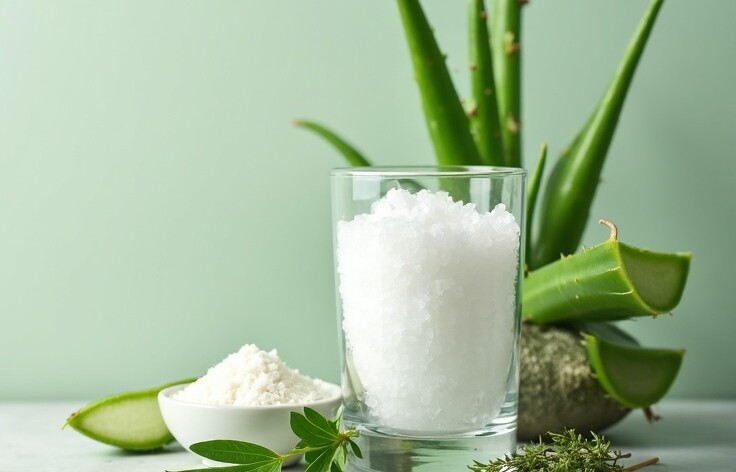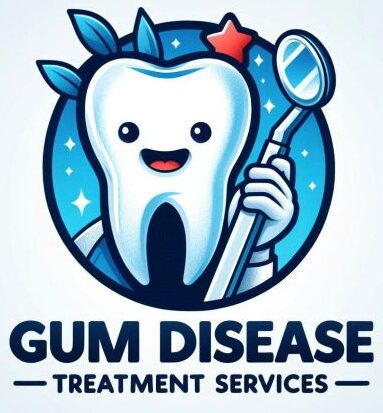If you’re starting to notice some tenderness in your gums, occasional bleeding, or just want to keep your mouth feeling healthy, you’re definitely not alone. Gum issues are way more common than you’d think, and even little things like brushing too hard or skipping flossing for a while can trigger them. The cool part is that some easy home remedies and daily habits can make a real difference for gum strength and overall mouth health.

Understanding Gum Health: Why Strong Gums Matter
Healthy gums keep your teeth snug in place and help protect your body from infections. If gums get weak, red, or tend to bleed, it can be an early sign of gum disease, which can snowball into bigger problems if ignored. In fact, research from the CDC says that almost half of adults over 30 in the US show some signs of gum disease. This highlights just how important it is to pay attention to those pink tissues around your teeth.
Strong gums stand up better to daily brushing, flossing, and the little knocks and bumps your mouth deals with from talking, eating, or grinding your teeth at night. They’re also really helpful in keeping bacteria where it belongs, not marching into your bloodstream. So, keeping gums strong isn’t just about a nicer smile; it’s a big part of your overall wellness and can have benefits for your entire body, including protecting your heart and reducing inflammation.
Some experts also point out that caring for your gums can even give a boost to your confidence. After all, a healthy mouth means fresh breath and less discomfort, so you’re more likely to smile and talk freely. Whether you’re chatting with friends or heading into a big meeting, taking care of your gums can really add to your daily quality of life.
Getting Started: Basic Habits That Help Your Gums
Some of the best things you can do for your gums don’t require fancy tools or ingredients. Here’s what works for most people:
- Brushing gently but thoroughly: Use a softbristled brush and focus on the gum line. Aggressive brushing wears gums down, so gentle strokes are the way to go.
- Floss daily: Flossing breaks up plaque and food bits between your teeth where your brush can’t reach. It’s a tiny effort with a big payoff for gum health.
- Rinse your mouth after meals: Swishing water around after eating can help clear out sugars and acids that hurt your gums.
- Avoid tobacco: Smoking and chewing tobacco damage gums and make it harder for them to heal if there’s an issue.
These basics are key if you want to see results from any home remedies you try. Good daily habits set up a strong foundation for gum health and get you better results from everything else on this list.
Top Home Remedies That May Strengthen Gums
Plenty of natural at-home tricks have been used for years to keep gums strong. While these don’t replace professional treatment when needed, they’re helpful for everyday care and staying proactive. Here are a few worth checking out:
- Salt Water Rinse: Dissolve about half a teaspoon of table salt in a glass of warm water. Swish it around your mouth for 30 seconds, then spit it out. Salt helps reduce swelling and can calm down irritated gum tissue.
- Aloe Vera Gel: Aloe vera is known for its soothing properties. You can apply a little of the gel directly to your gums (just make sure it’s safe for oral use). Leave it for a few minutes, then rinse. It can reduce redness and get rid of bacteria.
- Baking Soda Paste: Mixing a little baking soda with water to form a paste and gently massaging it onto your gums can help balance acidity and battle plaque. Just don’t scrub too hard, as baking soda is a mild abrasive.
- Oil Pulling: This traditional method involves swishing a tablespoon of coconut or sesame oil around your mouth for up to 20 minutes. It sounds odd, but some people find it helps reduce bacteria and keeps gums feeling healthy. Just spit the oil out, never swallow it, and rinse with water after.
- Green Tea: Drinking green tea can give your gums a little extra help because it contains antioxidants that lower inflammation and promote healing. Bonus: Green tea even helps fight off bacteria that cause gum disease, according to studies like this one from the National Institutes of Health.
- Clove Oil: Clove oil has natural antibacterial and antiinflammatory properties. Dab a little clove oil (diluted with a carrier oil like coconut) onto your gums with a cotton swab. You’ll notice a tingling sensation, which is normal. Don’t overdo it, just a tiny amount is plenty.
Some of these remedies, like saltwater rinsing and baking soda, have been passed down for generations for a reason; they’re easy, safe, and surprisingly effective for mild gum discomfort or as steady support between dental visits. Sticking to natural methods can also be reassuring if you’re sensitive to commercial products. Plus, these remedies are usually walletfriendly and don’t require a lastminute run to the store.
Everyday Challenges and What to Watch Out For
Even with the best intentions, some things can work against your gum health. Here’s what I’ve noticed can set people back from good gum health:
- Dry Mouth: Saliva helps wash away bacteria and food particles. If you notice your mouth feels dry, try to sip water throughout the day, chew sugarfree gum, and avoid mouthwashes with alcohol (they’ll dry you out even more).
- Tough Brushing Technique: Pressing too firmly or using a hard brush can damage gums over time. Stick to soft bristles and replace your toothbrush every 2-3 months.
- Too Much Sugar and Acid: Sugary snacks and acidic drinks (like soda and citrus juices) can wear away enamel and make gums more sensitive. A balanced diet with less snacking between meals works well for most people.
- Ignoring Early Signs: If you spot blood on your toothbrush, don’t shrug it off. Early signs (like bleeding, puffiness, or persistent bad breath) are worth chatting about with your dentist. Spotting things early is super important for keeping problems in check.
Daily awareness goes a long way. Little changes, like adjusting your brushing style or sipping more water, support those at-home remedies so you get the best results possible. Remember that stress, hormonal changes, and certain medications can also impact your gum health, so try to keep an eye on how your gums react during those periods.
Salt Water Rinse: A Simple Gum Soothe

Saltwater rinses are a classic for a reason. After a minor dental procedure or if my gums feel sore, I reach for salt and warm water. Not only does it feel soothing, but it’s a quick way to keep the mouth flush with moisture and lower bacteria numbers. Aim for once or twice a day, but no need to go wild; overuse can dry the tissues.
Baking Soda Paste: For Plaque Control
Baking soda comes in handy if you’re noticing stubborn plaque near the gums. Once or twice a week is plenty; use your finger or a soft brush to gently work the paste into your gums, then rinse well. Baking soda gently scrubs away buildup and helps keep your breath fresh too, which is a bonus if you like garlic as much as I do.
Green Tea: An Easy Way to Boost Gum Defense
If you’re a tea drinker like I am, switching out one cup of coffee for green tea during the day can give your gums a quiet boost. The antioxidants and antiinflammatory properties make it a solid pick for anyone looking to take up their mouth care with minimal fuss. Some folks even brew it and use the cooled tea as a mild mouth rinse.
Advanced Tips for Keeping Gums Strong
If you’re already brushing and flossing every day and using some of these remedies, there are a few nextlevel habits to add to the mix:
- Use an Electric Toothbrush: Studies (like those cited in ADA guidelines) show that electric model toothbrushes do a better job removing plaque and safeguarding gums than manual brushes when used the right way.
- Try a Water Flosser: Water flossers use a steady stream to clear out bacteria below the gumline where traditional floss can’t always reach. A lot of people find these more comfortable if they have sensitive gums.
- Stock Up On Crunchy Veggies: Foods like carrots, celery, and apples give your gums a light workout and increase saliva. Crunchy, fibrous foods clean teeth as you chew and even massage the gums, making snack time especially handy for mouth health.
- Stay on Top of Dental Checkups: While home remedies are great, regular cleanings and a professional look at your gums can catch issues before they turn into headaches.
Additionally, incorporating a tongue cleaner in your routine can lower bacteria and keep your entire mouth fresher, while gentle gum massages with your fingertips may boost blood circulation right where you need it most. Monitoring your intake of highly processed foods can also help, since additives and artificial flavors sometimes irritate the gums. Tailoring your overall routine based on how your mouth feels from week to week ensures your gums always get the care they deserve.
FAQs: All About Gum Strength
Question: Can gums really regrow once they’ve receded?
Answer: Once gum tissue is lost, it doesn’t come back on its own. Home remedies can help slow down further gum loss and keep the rest of your mouth healthy, but any serious recession should be discussed with a dentist.
Question: How long do I need to use these home remedies before seeing changes?
Answer: For mild redness or irritation, you could notice a difference in a few days, especially with salt water and better brushing. For more stubborn problems, give it a few weeks and keep up with your usual checkups.
Question: Are these natural remedies enough for gum disease?
Answer: Home remedies are good for basic care or minor symptoms, but gum disease that’s advanced really needs professional treatment. Dentists can clean below the gum line and help you set up a plan that works for your particular situation.
Daily Routines and Dietary Habits That Keep Gums Strong
Home remedies work best when they’re paired with an overall healthy lifestyle. Loading up on vitamins C and D (think bell peppers, strawberries, eggs, and yogurt), eating plenty of leafy greens, and steering clear of sugary drinks does a lot for gum strength. Hydration also counts; drinking water throughout the day keeps your mouth moist and helps rinse away debris naturally.
Limiting sticky or starchy snacks is helpful since those foods can cling to teeth and feed bacteria around the gumline. If you splurge on sweets, give your mouth a quick swish with water afterward or chew on crunchy veggies to help clean things up. Adding a probiotic yogurt to your daily menu may even support mouth health by promoting good bacteria, which in turn helps your gums stay in shape.
A balanced approach with home care, regular dental checkups, and small tweaks in your daily routine will keep your gums strong and smiling for years to come. A little effort can really go a long way, and your gums will thank you every time you grin.
